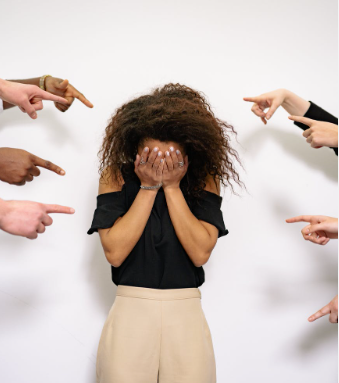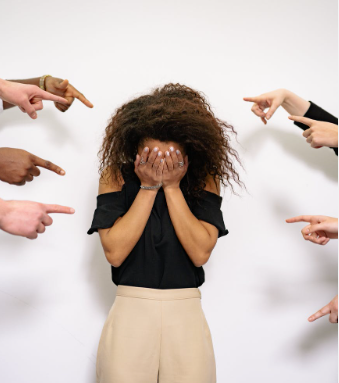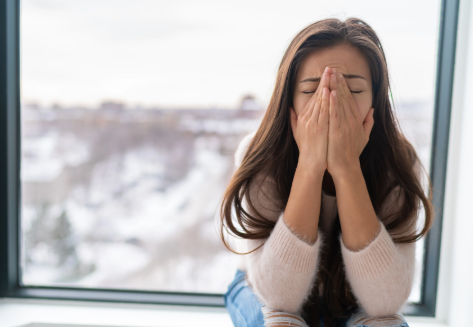Understanding Social Phobia: Symptoms and How It Affects Us

Introduction: What is Social Phobia?
Have you ever felt nervous about speaking in front of the class or meeting new people? Most people get a little nervous sometimes, but imagine if that nervousness was so strong it made you want to avoid these situations entirely. That’s what social phobia, or social anxiety disorder, is like. It’s more than just shyness; it’s a fear so intense that it stops people from doing everyday things. Social phobia is a real issue, and it affects many people, even though they may not talk about it. The good news? Social phobia is treatable, and understanding it is the first step!
Symptoms of Social Phobia
People with social phobia experience a mix of physical, emotional, and behavioral symptoms when they’re in social situations. Here’s how it might look:
- Physical Symptoms: When someone with social phobia feels scared in social settings, their body reacts strongly. They might start to sweat, blush, feel shaky, or have a racing heart. These reactions happen because the brain sends out “danger” signals, even when there’s no real danger. It’s like their body is saying, “Watch out!” when they’re simply around people.
- Emotional Symptoms: The fear that comes with social phobia isn’t just a small worry—it’s intense. People with social phobia feel so anxious that they start worrying way before an event, sometimes days or even weeks ahead. They might worry about saying the wrong thing, looking awkward, or being judged. After the event, they may feel embarrassed or worry that they didn’t do well, even if no one else noticed.
- Behavioral Symptoms: One of the biggest symptoms of social phobia is avoidance. People with social phobia might go out of their way to skip events, parties, or even hanging out with friends. It’s not because they don’t want to connect with people—they actually do! But the fear can be so intense that avoiding social situations feels like the only choice. Unfortunately, this can lead to loneliness and make social phobia even worse.
What Happens in the Brain with Social Phobia?
Let’s talk about what’s going on inside the brain when someone has social phobia. Our brains have a built-in alarm system that scientists call the “fight or flight response.” This system is run by a part of the brain called the amygdala (say it with me: uh-MIG-duh-luh). The amygdala’s job is to detect threats and get the body ready to face them.
For people with social phobia, their amygdala goes into “alert mode” even when there’s no real threat. So, being around people or speaking in public can set off the amygdala’s alarm. This sends out stress hormones like adrenaline, which makes the heart beat faster and causes sweating or shaking. The brain is acting like they’re in a dangerous situation, even though it’s just a normal social setting.
Another reason social phobia can be so strong is because of past experiences. If someone had a tough time in front of others, like giving a presentation or answering a question in class, their brain “remembers” that experience and reacts the same way in similar situations. The brain can learn these responses, but the good news is that it can also “unlearn” them with the right help.
How to Recognize if You Have Social Phobia
Do any of these symptoms sound familiar to you? Here are some questions to help you figure it out:
- Do you feel extremely nervous before social events or worry about them a lot, sometimes even days before?
- Are you afraid of being judged or embarrassed in front of other people?
- Do you avoid speaking in class, going to parties, or talking to people because of fear?
It’s normal to feel a little nervous before some situations, but social phobia goes beyond this. When these fears are so strong that they stop you from doing things you want or need to do, it might be social phobia. Recognizing these feelings is the first step toward getting better.
Why Social Phobia Happens
So, what actually causes social phobia? Scientists believe that a few different factors play a role, including genetics, life experiences, and brain chemistry:
- Genetics: Social phobia can run in families, which means if someone in your family has social anxiety, you might be more likely to have it too. But this doesn’t mean it’s guaranteed—plenty of people with social phobia don’t have family members with it.
- Life Experiences: Sometimes, tough or embarrassing experiences in social settings can increase the risk of developing social phobia. For example, being teased, bullied, or even just feeling very self-conscious in front of others can make someone more sensitive to social situations.
- Brain Chemistry: Our brain communicates using chemical messengers called neurotransmitters. These help control how we feel, think, and react. One neurotransmitter, serotonin, helps regulate mood. Some people with social phobia may have low serotonin levels, which can make anxiety feel stronger.
Ways to Manage and Treat Social Phobia
The good news? Social phobia can be treated! There are many ways to help reduce the symptoms and make social situations feel easier.
- Therapies that Work: One of the best treatments for social phobia is called Cognitive Behavioral Therapy (CBT). This type of therapy helps people change how they think about social situations and slowly face their fears. Part of CBT is exposure therapy, where people practice doing things that make them feel anxious but in a slow and manageable way. For example, they might start by saying “hi” to a friend or practicing speaking in front of a small group. Over time, these steps help people feel more confident.
- Medication as an Option: For some people, medication can help balance the brain’s chemicals and reduce symptoms. Medications like SSRIs (selective serotonin reuptake inhibitors) can help by adjusting serotonin levels, making it easier to handle anxiety. Medication isn’t for everyone, but it can be part of the solution.
- Daily Techniques: There are small things you can do daily to help manage social phobia symptoms. For example:
- Breathing exercises: Deep, slow breathing can help calm your body’s “alarm system.”
- Mindfulness: This involves focusing on the present moment and accepting your feelings without judging them. Practicing mindfulness can help reduce anxiety.
- Positive self-talk: Remind yourself that social situations are often not as scary as they seem and that people are generally not judging you as harshly as you imagine.
Conclusion: There’s Hope and Help for Social Phobia
If you or someone you know has social phobia, remember that it’s not something to be ashamed of. Social phobia can feel really overwhelming, but with patience, practice, and the right help, it can get easier. Don’t be afraid to talk to a trusted adult, friend, or teacher about these feelings. Getting support is one of the best ways to start feeling better.
There are many resources available, and help can come from places like therapy, community support, and sometimes medication. You’re not alone, and many people have learned how to manage social phobia and even thrive in social situations. It takes time, but you can absolutely find a way to feel more comfortable around others. You’ve got this!









Leave a comment